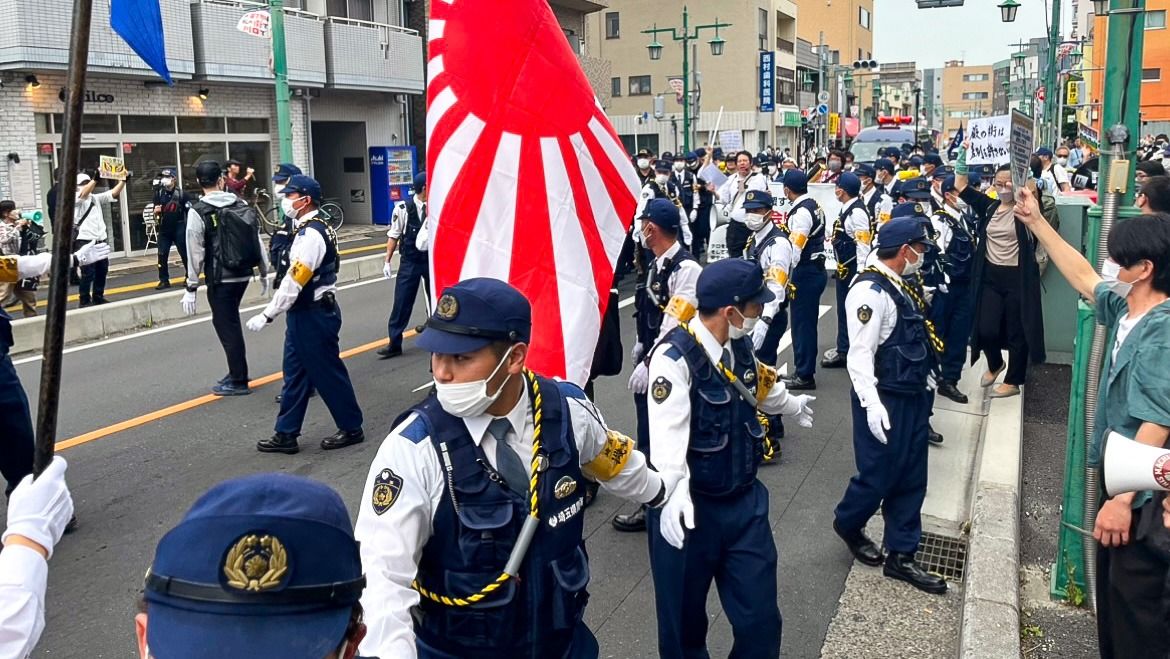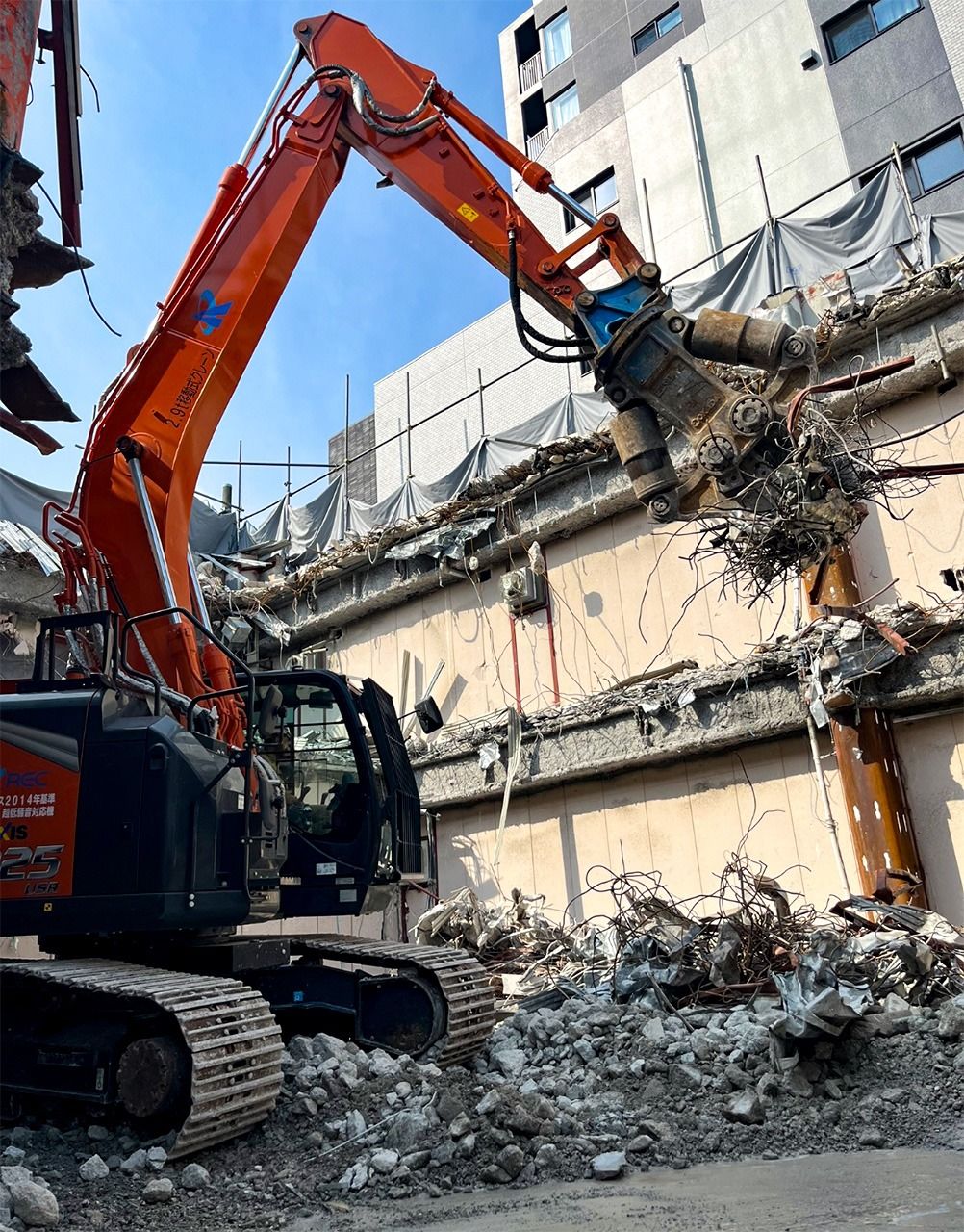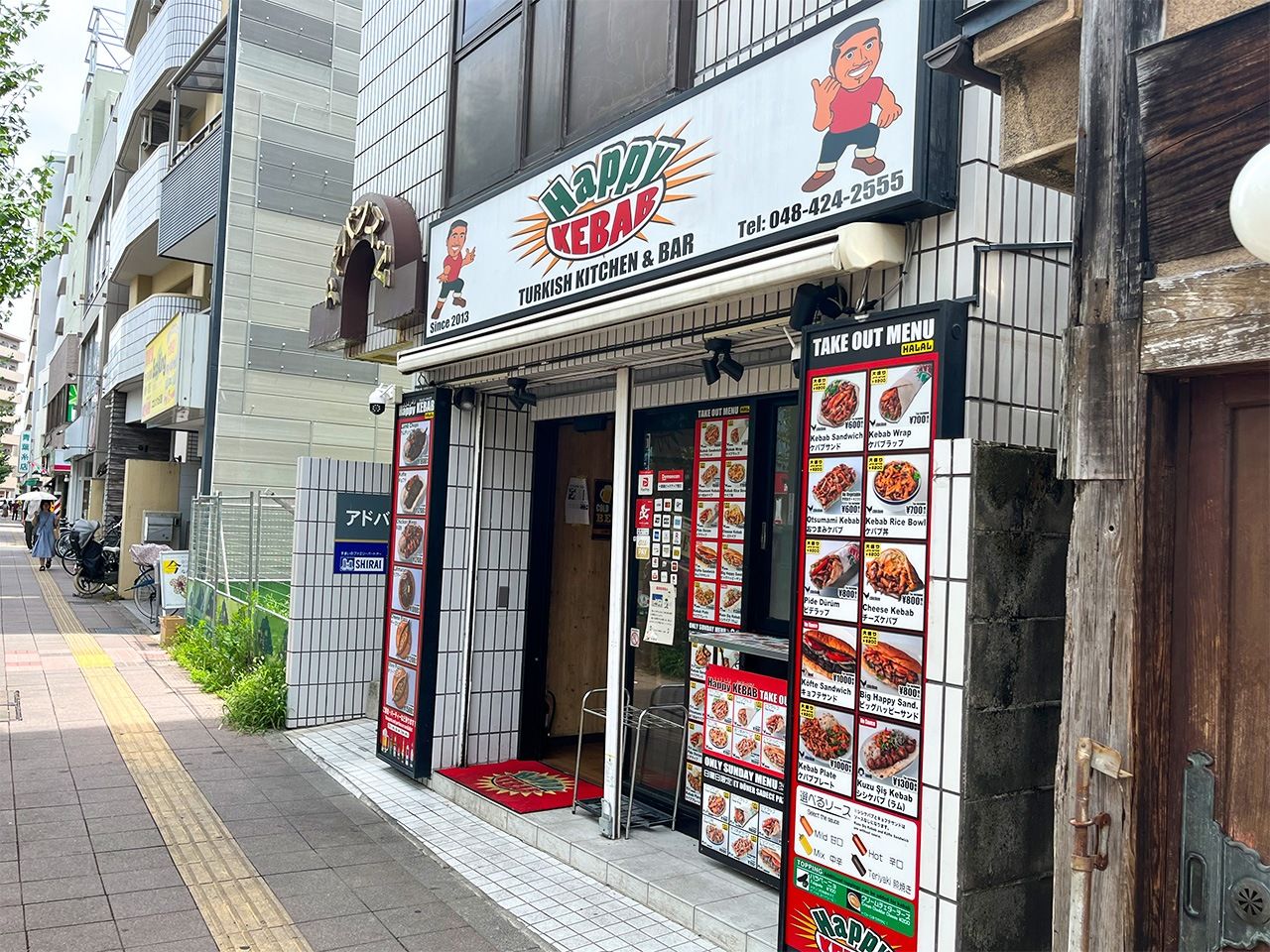
Japanese Hate Groups Targeting Kurdish Community
Society Lifestyle Work- English
- 日本語
- 简体字
- 繁體字
- Français
- Español
- العربية
- Русский
It has been 20 years since Is Kemal settled in southern Saitama Prefecture, fleeing discrimination in his native Turkey. When I asked the 38-year-old Kemal to describe his first impression of Japan, he recalled, “It smelled like peace.” Two decades on, the promise of a tranquil life free from persecution is fading amid a surge in harassment and hate speech by xenophobic nationalists.
Plight of a Stateless People
The Kurds are an ethnic group with a distinct language and culture but no country of their own. Indeed, they have been called the world’s largest stateless people. They are concentrated in a mountainous region spanning Turkey, Syria, Iran, and Iraq, though many have fled their homelands in the face of repression and discrimination.
Under the policy of Turkification, the Turkish government long denied the Kurds’ very existence as an ethnic group, and the use of Kurdish was outlawed. (The language is still banned from most schools.) Persecution of the Kurds intensified in the 1980s and 1990s, during the armed conflict between the Turkish military and the Kurdistan Workers’ Party (PKK), a militant Kurdish rights group. Even now, ordinary Kurdish civilians face the prospect of being drafted into the military to fight against their own people.
It was in the early 1990s that Turkish Kurds began settling around the cities of Kawaguchi and Warabi in southern Saitama Prefecture, not far from Tokyo. One reason the Kurds were drawn to Japan was its image as a peace-loving nation. Another was that, under a bilateral treaty, Turkish nationals could enter Japan for a stay of up to 90 days without a visa.
Kemal was among those who entered Japan as a short-term visitor and stayed beyond the authorized 90 days. Having made up his mind to build a new life in Japan, he worked hard and played by the rules, and today he resides here legally as the owner of a successful demolition company and a Kurdish restaurant.
But Kemal has not been sleeping well of late. He is troubled and angered by the anti-Kurd agitators who gather near the train station every month or so, waving Japanese flags and yelling at the Kurds to go home. They appear to be organized by the same ultranationalist groups that have spearheaded anti-Korean movements in other prefectures.
Anti-Kurd misinformation and hate speech have escalated on social media. Incendiary posts brand the Kurds as murderers who are trying to “take over Japan.” Some trolls go further, exhorting sympathizers to “kill them” or “go Kurd hunting.”
On one occasion, an anti-Kurd YouTuber barged into Kemal’s restaurant, apparently incensed about overflow parking on the street, and began shooting a cellphone video without permission. When a restaurant employee tried to stop the unauthorized filming, he was roughly accused of damaging the filmer’s property. The YouTuber’s entourage began shouting, “Go home, Kurds!” “Get out of Japan, you trash!” Eventually the police were summoned. Even now the restaurant receives harassing phone calls on a daily basis. Agitators stand out in front with their cellphones relaying on-the-scene “reports” laced with hate speech.
Doing the Dirty Work
Tas Mehmet, age 54, is reputed to be the first Kurd to have settled in Kawaguchi. When he arrived in Japan in 1993, fleeing persecution in Turkey, he knew no one and had nowhere to turn. He managed to find his way from Narita Airport to Tokyo Station, but with no understanding of Japanese, Mehmet was at a loss as to what to do next. Fortunately, he was rescued by a passing Pakistani, who let him stay at his home in Kawaguchi.
“From that point on, I worked tirelessly to build a new life here,” says Mehmet. “I took the kinds of jobs Japanese people don’t want to do, like working in sewers, in construction, and in demolition.”
In time, Mehmet secured a permit to live and work in Japan and established himself as a successful demolition contractor. With his encouragement and support, other Kurds settled in Kawaguchi, attracting still more migrants, until a thriving Kurdish community had sprung up.
Some of the migrants came to work for Mehmet or Japanese demolition firms and then set up their own businesses. Today, there are close to 200 Kurdish demolition firms (including independent contractors) based in southern Saitama. Indeed, as more and more Japanese contractors retire without heirs to take over, the industry has become heavily dependent on these Kurds.

Kurdish demolition workers knock down a building. (© Yasuda Kōichi)
But after living peacefully and productively in Japan for three decades, Mehmet now faces each new day with trepidation. A driver in the adjacent lane recently yelled at him to go back where he came from. He has been teasingly called a terrorist. He is continually receiving reports from employees who have been subject to similar verbal abuse at their work sites.
Mehmet’s 33-year-old son Tefiki, who runs a kebab restaurant near Warabi Station, has also been the victim of telephone harassment and the online posting of unauthorized videos overlaid with hate-filled captions. After he purchased advertising space inside local train stations and buses, there were calls to the transportation authorities demanding that the ads be taken down.

Mehmet’s restaurant Happy Kebab. (© Yasuda Kōichi)
Kurdish children playing in the local playground and Kurdish families shopping at the mall have had their pictures taken and posted online without their consent. “We’re just going about our daily lives, and yet we’ve become objects of hatred,” says Tefiki, his voice quavering. “How long is this going to go on?”
Sowing Fear over Social Media
A major impetus behind the outbreak of bigotry against Kurds was last year’s Diet deliberations over amendment of the Immigration Control and Refugee Recognition Act, according to Nukui Tatsuhiro, representative director of a Warabi-based nonprofit group dedicated to assisting Kurdish migrants (Zainichi Kurudojin to Tomoni). Debate centered especially on a provision limiting the number of times an undocumented foreign national can apply for refugee status before being subject to deportation. Proponents of the change argued that it was needed to prevent migrants with no legitimate claim to refugee status from extending their stay indefinitely through repeated applications.
“The debate suddenly called attention to the presence of Kurdish migrants, quite a few of whom have applied for refugee status,” explains Nukui. “Some of the media coverage focused on undocumented migrants, and that doubtless incited those who oppose admission of refugees and immigrants.”
In other words, the Diet deliberations trained a spotlight on the Kurdish community, which had scarcely caused a ripple previously, inciting the xenophobia to which certain elements in Japan are prone. Online hate speech against Kurds exploded as this element leveraged social media to promote the new law, which would make it easier to deport foreigners seeking asylum. (The revised law came into force in June 2024 and makes individuals applying for asylum status three or more times subject to deportation.—Ed.)
Unfortunate Timing
It is also undeniable that some members of southern Saitama’s Kurdish community have run afoul of their Japanese neighbors over issues like noise and failure to observe the complex rules governing garbage collection and recycling. Incidents involving driving without a license—including a fatal hit-and-run accident—have been in the news as well.
In June 2023, the Kawaguchi Municipal Assembly approved a written opinion calling for “a crackdown on crimes by certain foreigners” (without mentioning Kurds specifically) and submitted it to the prefectural and national governments. The resolution has doubtless helped xenophobes propagate the image of Kawaguchi as a city reigned by lawless Kurds.
Unfortunately, an incident occurred the following month that reinforced such prejudices. It began as a fight between two Kurdish men reportedly over an extramarital affair. They were injured and taken to the same hospital, and the friends and relatives of the two got into a brawl in the hospital parking lot. The incident was heavily reported by certain media outlets, leading to an outpouring of hate speech on the Internet and renewed anti-Kurd demonstrations.
“Just going by what you see on the Internet, you’d think that Kawaguchi and Warabi were lawless realms awash in violence, like something out of Mad Max,” says Nukui.
The everyday reality of the area could scarcely be more different from that image.
Friction and Overreaction
Both Kawaguchi and Warabi have relatively high concentrations of non-Japanese residents. In Kawaguchi, the number of foreign nationals has more than doubled in the past 20 years, rising from 14,679 in 2004 to 39,553 in 2023. But only about 1,200 of those are Turkish nationals, including Kurds. Moreover, the number of criminal offenses reported annually has dropped sharply over the same period, from 16,314 to 4,437. Of the 1,313 people arrested by the Kawaguchi police last year, 1,129 were Japanese citizens.
A spokesperson for the municipal government assured me that the crime rate among foreign residents is not particularly high. “It’s true that there’s been some trouble with Japanese residents over noise and garbage issues,” the official conceded. “That’s why we’ve taken steps to promote multicultural coexistence, as by creating a multilingual portal to familiarize foreign residents with the rules of community life and distributing cards printed with the site’s QR code to residents throughout the city.”
Another city employee confided that anti-Kurd phone calls had become a major headache. “I suppose it’s the Internet’s influence, but we’ve been getting a barrage of calls from people telling us to ‘throw out the Kurds’ or demanding to know why we’re spending citizens’ tax money on foreigners. Sometimes my whole day is taken up dealing with those callers. And I get the feeling that most of them aren’t residents of Kawaguchi.”
On August 20 this year, a man in his thirties was referred to the Saitama District Public Prosecutors Office for sending the above-mentioned support group threatening messages, including one vowing to “kill all the Kurds and feed them to the pigs.” The man is a resident of Tokyo Metropolis. Indeed, it seems clear that most of the anti-Kurd harassment, demonstrations, and misinformation described above can be traced to outsiders.
This is not to say that there are no negative feelings among the locals. Some of the Japanese residents I interviewed complained about excessive noise from vehicles and demolition work. One person said, “It’s frightening to see groups [of Kurds] loitering outside the convenience store.” Although Kurds account for only a small minority of those arrested by local police, the Kurdish population does include a significant number of undocumented residents, including those who have been released from detention pending a ruling on their application for asylum. Some Japanese residents associate this legally ambiguous status with crime or disorder.
However, the lack of documentation is largely the fault of the Japanese immigration system, which routinely denies Kurds refugee status despite the persecution they endure in Turkey. It does not justify hate speech.
The Latest Victims of Hate
The wave of hatred against Kurds per se only surfaced about a year ago. Before that, however, Kawaguchi and other communities were contending with anti-immigrant rallies, demonstrations, and online hate speech directed at Chinese nationals.
The initial focus of these xenophobic agitators was Japan’s long-established ethnic Korean community. In recent years, it has shifted, first to Chinese nationals and then to Kurds. Although the main target keeps changing, the instigators are essentially the same, as is the damage their misinformation leaves in its wake.
I recently visited a demolition site outside of Saitama Prefecture where a Kurdish contractor was at work. His crew was working with extraordinary care, taking great pains to protect nearby residents from hazards like dust and noise. As we were heading back to Kawaguchi in the contractor’s truck, he began to speak quietly, as if muttering to himself.
“These days it’s depressing to go back to Kawaguchi after work. I used to feel a sense of relief when Kawaguchi’s tree-lined streets came into view, knowing my family and friends were waiting for me. Now I’m just really anxious. When I go home, I feel self-conscious about being a Kurd. Are Kurds that scary? What scares me is discrimination.”
In Japan today, no one has more to fear than the Kurds themselves.
(Originally published in Japanese. Banner photo: An anti-Kurd demonstration outside Warabi Station in Saitama Prefecture in September 2024. © Yasuda Kōichi.)
Related Tags
foreign workers refugees foreign labor immigrants hate speech
